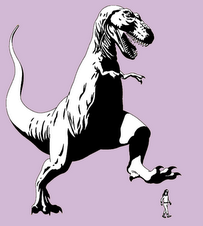Think Outside the Box but Stay Inside the Grid
This piece was short and to the point, which I always enjoy. I liked the way Emma Black used her voice and broke up the school year into months, although the skips in time were a little confusing. I think this is a story about getting lost in the system, the people who fall through the cracks. The students she helped will have to go on next year with a teacher who might suck and work to take tests that the state designs to homogenize people. Black was unappreciated, which she didn't have to come out and say. The situations she presented made it clear. I love the ending; it really sums up the passion of the people who make teaching their life's work.
Some questions:
1. Why the lapse in time? Would it be too wordy, or were some months more important than others?
2. Will children being brought up with the current "No Child Left Behind" programs be able to think creatively and write, etc. if they are constantly being pushed towards a uniform system of learning?
3. What benefits does teaching writing have for the teacher?
Prime-Time You
I thought that this essay could have been a lot more interesting. John Fischer's research into culture and consumerism leads him to the conclusion that Gen Y (I guess our generation?) sucks. I thought that his voice was lifeless, which may have been what he was going for...but still. I thought the piece could have been a little more personalized; instead of what "you" were doing at this time, he could have told us what "I" was doing (you know?). I enjoyed the references to pop culture; they were relevant to people in our age group. I felt that he didn't know who his audience was--who was he trying to convince of what? He did make a point--that we need to change with the times (i.e. we need to break the cycle of buying into the same old crap), but "Those fuckers" as your last line? Really?
Some questions:
1. Who is his audience?
2. How can we write to a specific audience without telling too much?
3. Is this a persuasive piece? How do you incorporate personal experiences into a personal piece best?
In, From the Outside
I liked Katherine Dykstra's essay about what it means to feel "poor" in our complicated American society. The class wars rage all the time, even in the 21st century (or should I say especially in the 21st century). It was interesting how Dykstra wrote about her alienation from her students, her need to relate to them on some level, and as a reader, I related to her. Even if we don't go through the same experiences as people, we can still relate to them because we're all human. We all feel the same things at some point. Her descriptions were clear and vivid. I especially liked the way she wove in stories of her own childhood. She ended on a good note, too. The kids were finally allowed to see what she had been up to, the nice hotel and all, and instead of feeling sorry for themselves, they just kept on living.
Some questions:
1. How can we help raise awareness through writing? Where is the best place to send our awareness pieces?
2. How does a journalism background influence a writer's voice?
Goodbye to All That
This was another story of a young person trying to live out a lifelong dream, only to find that dreams are not for awake people. Eula Biss took her title from a Joan Didion piece of the same name, which was also about New York. Biss's essay focused on the fact that everyone's perception of the same place is different; it is our own individual experience that matters. I loved her descriptions of carnivals and Coney Island, especially at the end. It reflected the feelings that she was trying to convey, the feelings of dreams being changed but not destroyed completely.
Some questions:
1. When it comes to symbolism, is it better to use the same object(s) throughout a piece, or does it not matter?
2. What is the best way to pay homage to another writer in your own writing?
3. Is any place or experience that you've been dreaming about ever what you expect it to be?
My Little Comma
Erlena Evans presents us with an engaging account of what it means to be a mother and a woman of the 21st century at the same time. She really captures the pressures that are put on women today; there are so many expectations put on us. We have to uphold not only the gender roles of the past, but also the new ideas of what makes a successful person. Evans struggles with her experiences as a mother; she is torn between her need to be there for her baby and her educational goals. I felt that she did a beautiful job describing motherhood. I love her last line, too: "I can do it, I really can. If I have my Ph.D."
Some questions:
1. How can we best turn our inner conflicts into good writing that other people can relate to?
2. She mentions her writing career and refusing to share--what is the best way to gain the confidence to share?
3. How do we write about really difficult things in our lives? Is there a "best" way?
Subscribe to:
Post Comments (Atom)


No comments:
Post a Comment